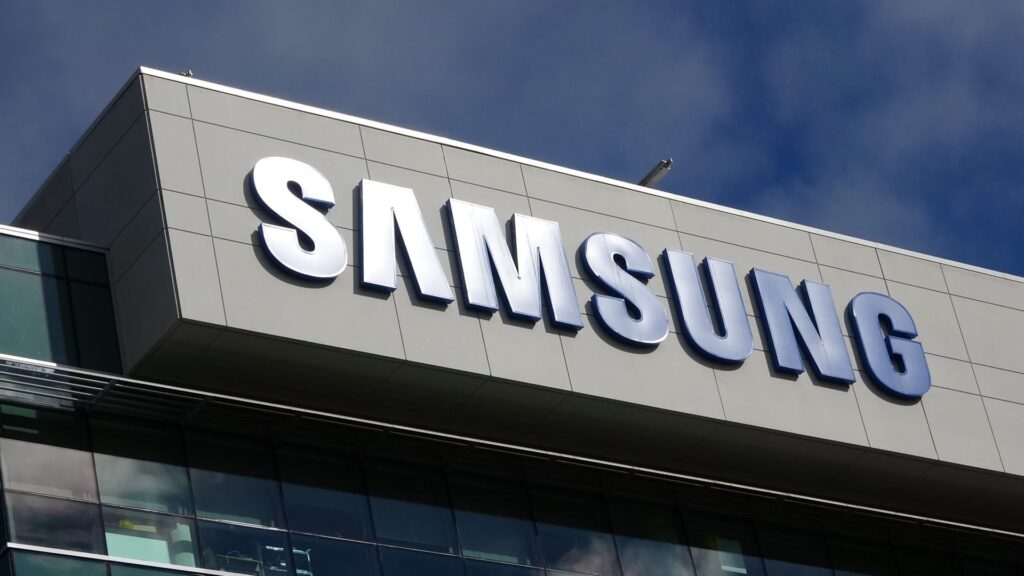October 28, 2018, Samsung headquarters in Mountain View, California.
Smith Collection/Gado | Archive Photos | Getty Images
Samsung Electronics said on Thursday that its operating profit more than doubled from the previous quarter and its profits recovered due to strong demand for memory chips from artificial intelligence servers.
Below is a comparison of Samsung’s third quarter results with the LSEG SmartEstimate, which emphasizes more consistently accurate analyst forecasts.
Revenue: 86.1 trillion Korean won ($60.5 billion) vs. 85.93 trillion won Operating profit: 12.2 trillion won vs. 11.25 trillion won
The South Korean technology giant’s quarterly revenue increased by 8.85% year-on-year, and its first-quarter operating profit increased by 32.9% over the same period.
Samsung shares soared nearly 4% in early Asian trading.
The profit marks a recovery from the June quarter, which was weighed down by a major slump in Samsung’s chip business. Operating profit increased by 160% compared to June, and sales increased by 15.5% over the same period.
Samsung Electronics is South Korea’s largest company by market capitalization and a leading provider of memory chips, semiconductor foundry services, and smartphones.
The company’s chip business boosted its earnings, with operating profit increasing more than 10 times compared to the June quarter due to strong demand for AI servers.
Samsung echoed the sentiments of its memory rivals and predicted demand for AI chips would continue to grow. SK Hynixreported earnings on Wednesday.
“As the race to secure AI infrastructure continues, we expect data center companies to continue expanding their hardware investments,” a Samsung executive said in an earnings conference.
“Therefore, the demand for AI-related servers continues to grow, and this demand significantly exceeds industry supply,” he added.
chip business
Samsung’s chip business reported a 19% increase in sales compared to the June quarter, with the memory business posting record quarterly sales, driven by strong demand for artificial intelligence.
Chip sales increased by 13% year-on-year to KRW 33.1 trillion, and operating profit increased by 81% to KRW 7.0 trillion over the same period.
Samsung’s chip business, also known as the Device Solutions division, includes memory chips, semiconductor design, and foundry divisions.
Samsung said its quarterly sales reached a record high as the division benefited from a favorable pricing environment and increased sales of high-bandwidth memory (HBM) chips, a type of memory used in artificial intelligence computing.
The company found itself lagging behind memory rival SK Hynix in the HBM market due to delays in winning large contracts with leading AI chips. Nvidia. However, there is a bright spot for the company, which reportedly passed Nvidia’s certification tests for its advanced HBM chip last month.
A report by Counterpoint Research earlier this month found that Samsung regained the top spot in the memory market in the third quarter, overtaking SK Hynix, after falling behind its competitors for the first time in the previous quarter.
MS Hwang, research director at Counterpoint Research, told CNBC that Samsung’s third-quarter performance was a clear result of the broader “memory market boom” and rising prices for general-purpose memory.
Samsung said that its memory business will focus on mass production of HBM4, the next generation HBM technology, toward 2026.
smartphone
Samsung’s Mobile Experience and Networks business, which develops and sells devices such as smartphones, tablets and wearables, reported both sales and profits increased.
The division’s operating profit for the third quarter was 3.6 trillion won, an increase of about 28% from the same period last year.
The company said revenue was driven by strong sales of its flagship smartphones, including the launch of the Galaxy Z Fold 7 device.
Samsung predicted that rapid growth in the AI industry will open up new market opportunities for both its device and chip businesses this quarter.


